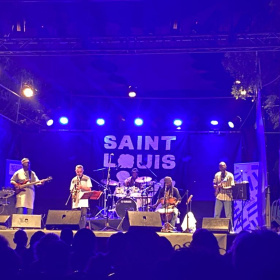Tanzanian musician, producer trial postponed for fifth time
The controversial case against Tanzanian musician Mwana Cotide and music producer Mussa Sekabwe has been postponed until 9 March 2017. This is the fifth time the trial date has been pushed back.
 Mwana Cotide. Photo: YouTube
Mwana Cotide. Photo: YouTube
The two were charged in the Kisutu Resident Magistrate’s Court in the capital Dar es Salaam on 28 September 2016 for uploading a video of the ‘Dikteta Uchwara’ (Petty Dictator) song on YouTube about a month before their indictment. The video has since been removed.
They were initially set to face trial on 12 October 2016 on charges of producing, singing and distributing the song, which allegedly contained “seditious and offensive” content against Tanzanian President John Magufuli. Cotide and Sekabwe were also charged for “distributing the song with intent to offend”, which is against the country’s 2015 Cybercrimes Act. They denied the charges and were released on bail.
“Peace-loving citizens, now we have exhausted our patience. We have seen the dictator. He/she has entered our grandfather’s house. He/she is sleeping on democracy. We, the peace-loving citizens, now we have exhausted our patience. We have seen him/her, we have seen him/her, the petty dictator," the lyrics to ‘Dikteta Uchwara’ partly say.
In November last year, Freemuse, an independent international organisation that advocates artistic expression, called for the charges against Cotide and Sekabwe to be dropped and sent a letter to the Minister for Constitutional and Legal Affairs, Harrison Mwakyembe. Mwakyembe has yet to reply to the letter.
The trial date was postponed from 12 October to 9 November, then to 22 December. It was then pushed to 26 January, 22 February and now 9 March. If convicted under the Cybercrimes Act, Cotide and Sekabwe could face hefty fines or even imprisonment.
Tanzanian authorities say the postponements have been due to ongoing investigations into the matter. However, they have confiscated Sekabwe’s musical equipment until the investigation is concluded, stifling the producer's ability to work.
“Not only are the charges against the two artists a gross violation of artistic freedom, but the ongoing confiscation of music instruments continues to take away their livelihoods as artists,” Freemuse executive director Ole Reitov said. “We call on the Tanzanian government to drop the charges immediately.”
Authorities also invoked the Cybercrimes Act in a case against Snura Mushi, who was banned in May last year from performing and distributing her song ‘Chura’ due to the inclusion of “immoral acts” in the video.
Since Magufuli took office in October 2015 and the Cybercrimes Act was enacted in May 2015, fourteen people have been arrested and charged for insulting the president on social media. Global Voices, an anti-censorship network of bloggers and activists worldwide, reported in September last year that only one person was convicted of the charges.























Commentaires
s'identifier or register to post comments